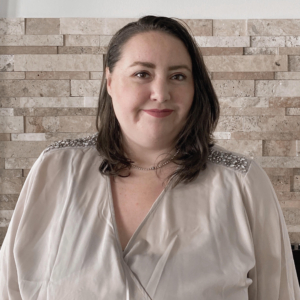You Are Sick Enough
Looking back on when I first received treatment for my eating disorder as a teenager, my memory is riddled with thoughts of “I’m not sick enough” and “Is my struggle not as bad?”. I was unaware of the paradoxical twist of worries that I was not struggling enough, and therefore did not deserve help, even though I “followed the demands” of my eating disorder. I followed the eating disorder so much that I refused help for long stretches of time and deeply suffered during my many self-exiles.
When we question if we are “sick enough” in our eating disorder struggles, we may conclude that we do not deserve help thinking “others have it worse”. Sadly, many people struggle with this mentality in the eating disorders community. It took me many years of reaching out for help, and back-tracking by shutting the door on help, to slowly reach out again — to no longer attach feelings of reluctance and shame when it came to accepting help.
In many ways, our community fanned the flames of the “not-sick-enough monster” that looms over eating disorder sufferers and prevents many of us from fully healing. The Diagnostic and Statistical Manual of Mental Disorders (DSM) and past treatment of eating disorders prevented many of us who were not “underweight” from believing we deserved help since we didn’t “look the part”. Before the DSM-5, which was published in 2013, criteria for an anorexia diagnosis included a loss of a menstrual period (if applicable) as well as a low weight on the BMI chart. When I first learned of this as a teenager in 2011, I felt what I was going through wasn’t as serious because I hadn’t experienced physical health complications due to my eating disorder yet. I thought, “How must a mental illness require physical detriments?” and “Why am I told I deserve help and in the same breath feeling like I am being told I am not sick enough?”.
In addition to my internal confusion, the media often only shines the spotlight on those recovering from anorexia, and this continues today. We primarily see anorexia recovery stories—accompanied by “underweight” before-and-after recovery photos—and hardly ever see other compassionate stories of some more prevalent eating disorders like Other Specified Feeding or Eating Disorders (OSFED), Binge eating disorder (BED), or bulimia. Less than 6% of those struggling with eating disorders are considered “underweight”*, and the primary emphasis on lower-weight eating disorders leads many to question if these potentially fatal conditions would still make the news if they did not appeal to sensationalistic standards of thinness and beauty?
When lower-weight eating disorders with physical consequences are solely in the spotlight, while others remain in the shadows, the public does not understand the full gamut of eating disorders. The lack of representation wrongly implies that everyone with an eating disorder experiences the same outcomes (e.g., restrictive behaviors and extreme weight loss) and that if someone appears a “normal” weight, they must be “healthy” and “fine”. I never saw a story similar to my eating disorder and recovery journey in the media.
At the end of the day, we were failed by the system that is supposed to help us; and we continue to be failed by some providers who need to unlearn outdated problematic criteria, may not be educated on these updates, or potentially even refuse the amendments to the latest DSM. Of course, the other perspective is that change takes time. We had to try “A, B, and C” before getting to “X, Y, and Z”. However, the grim history of mental health treatment proves to not always be on the side of the sufferer. If eating disorder sufferers were believed in their mental distress without physical effects being made to be the tell-tale sign of the illness, perhaps the history of treatment and DSM would look different. And perhaps those suffering from eating disorders wouldn’t be comparing their bodies to other patients and wondering if they are sick enough, let alone deserving of help.
I was told before being admitted to my first residential treatment stay for my eating disorder that the treatment center had to fight with my insurance to get me admitted because I was a “normal” weight. Breaking down eating disorders into separate diagnoses with rigid criteria creating challenges or preventing people from “qualifying” for help has caused us more harm than good. Perhaps, in an ideal world, we should do away with the specific diagnoses, and the term “eating disorder” should suffice as the one singular diagnosis.
Society is notably very stuck in its old ways, too. There was an incredible amount of public outrage when plus-size model Tess Holliday spoke out about her anorexia diagnosis. It’s an absolute shame that we have been trained to believe being sick equates to outwardly appearing “sickly,” especially in terms of a mental illness that are often unseen battles. Moreso, it is very important that change is happening right now and that anorexia is being recognized by thoughts and behaviors and not primarily physical effects anymore. Eating disorders can cause weight loss, weight gain, or have absolutely no effect on one’s weight — and in all instances, the struggle is real and valid. When will we learn that eating disorders do not have a look? When will we believe eating disorder survivors?
My heart hurts for every eating disorder survivor, especially pre-2013, and those who continue to be harmed by previous misconceptions and stringent deciding factors by medical standards. Whether that message was made clear by being outright refused treatment or more subtly by looking around and being the only patient in the treatment center in a larger body, it wreaked havoc on our minds. It makes sense why, “I’m not sick enough” reverberates in our brains like a dejected, broken record.
The time is now to play a different tune. But first, we must recognize that outside forces held us back — this is not our fault. It is not our fault that we question if we are sick enough. We must hold those forces accountable for the harm done. And we must speak up, educate and ensure that this never happens again. Messaging persisting that we are not sick enough in our eating disorder struggles has led to generations of questioning that have resulted in many reaching out only to later recoil and ultimately feel undeserving of help.
Eating disorders must be seen as the mental illnesses they are first and foremost; they can certainly impact our physical being, but they start as internal battles. We must believe that these battles in the brain are difficult and traumatizing, and we must believe that even though these are challenging battles, these are battles worth fighting. Eating disorders are battles that can be overcome.
Not only is there hope for us, but there is hope that future generations will hear our heartbreaking tales of feeling we were not “sick enough.” I hope future generations will experience HAES-aligned, open-minded, non-judgmental, compassionate care.
One day, “I’m not sick enough” will be eradicated from our thoughts. All eating disorder sufferers are valid and deserving of help.
Lexie Manion is a writer, artist, student and mental health advocate. She often writes about mental health and body acceptance topics, and shares her personal recoveries from mental illness. Lexie is working towards becoming an art therapist, as she has a deep love for creating art that reflects different emotions and experiences. Lexie strongly believes art and writing can be cathartic. She shares the messages that we are enough as we are and worthy of help. You can find more of her work at lexiemanion.com or follow her on Instagram at the handle @lexiemanion.
*Arcelus, Jon et al. “Mortality rates in patients with anorexia nervosa and other eating disorders. A meta-analysis of 36 studies.” Archives of general psychiatry 68,7 (2011): 724-31. https://doi.org/10.1001/archgenpsychiatry.2011.74





